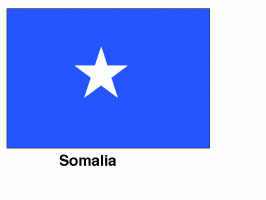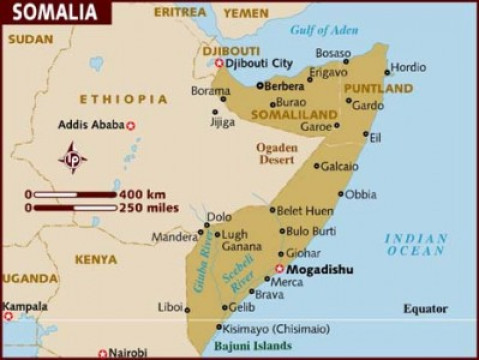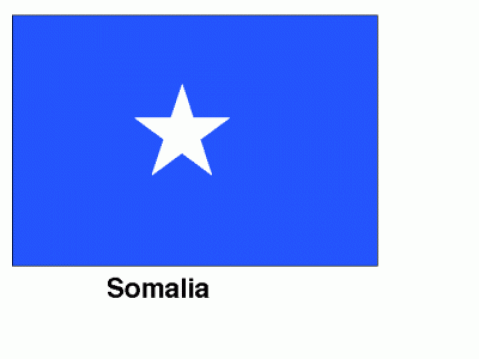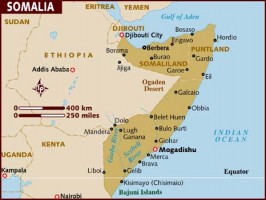Widgetized Section
Go to Admin » Appearance » Widgets » and move Gabfire Widget: Social into that MastheadOverlay zone
Civil Service Reforms in Somalia
By Sergei Pushkarev
In September 2012 a new president was elected in Somalia and a new Constitution was adopted. This marked a new stage in the development of Somalia, which went through a civil war and disorder in the 1990s and 2000s. The country is still faced with a lot of challenges: breakaway regions (Somaliland and Puntland), militant groups (Al-Shabaab), weak federal government, high unemployment and a weak economy.
The starting points for civil service reforms in Somalia are different for the three regions of Somalia. Somaliland is the most advanced region where most government agencies are established and functioning, there is a Civil Service Institute with a number of training programs for civil servants, including a degree program. A civil service commission oversees competitive entry examinations and strives to introduce other managerial techniques to manage civil servants in Somaliland. Civil servants are divided into four grades reflecting their level of responsibility, education, political dimension of their work, and skills.
Puntland’s civil service commission establishes guidelines, but the Ministry of Labor is responsible for day to day management of the civil service. There is a need to establish many basic rules and procedures. Civil servants upgrade their knowledge and skills in a local university, but training is mostly theoretical and abstract. Civil service itself is having a hard time attracting educated and skillful employees.
The main priority for the federal government in Mogadishu is security, as there are still areas in the south which are not fully controlled by the federal government. There are occasional terrorist attacks and exchange of fire in the capital. Nevertheless, the federal government works toward establishing the basics of a government machinery: the structure of the government and its administrative procedures, institution building, lines of accountability, policy making procedures and financial management.
UNDP Somalia is assisting the federal government of Somalia, the governments of Somaliland and Puntland in reforming their civil service, modernizing government institutions and improving public services.
General framework for civil service reform in Somalia
 In general, the civil service reform in Somalia includes a number of measures. First, it embarks at establishing a procedure to register and monitor the number of civil servants. Currently the number of civil servants is checked through periodic staff surveys. This procedure is resource and time consuming and is not very efficient.
In general, the civil service reform in Somalia includes a number of measures. First, it embarks at establishing a procedure to register and monitor the number of civil servants. Currently the number of civil servants is checked through periodic staff surveys. This procedure is resource and time consuming and is not very efficient.
Until now, regular HR functions are not established which would otherwise allow for strict written accountability of existing personnel and real time changes in the personnel files and financial records. This is true to all three regions of Somalia. The civil service commissions have yet to assume their proper role in managing the civil service, either on their own or in close cooperation with ministries of labor, national development, finance and good governance commissions. In line with these efforts there are plans to issue ID cards for all civil servants. Civil service ID cards would make personal salary payments more transparent, improve security in the workplace and help to build civil service as a distinct profession in all three regions of Somalia.
Yet another direction of the civil service reform is organizational change and restructuring. This is done though a functional review and analysis which would help to eliminate duplication of functions or fill in the gaps where they exist. The goal of the functional review is to describe and assess the existing structures and functions and to identify the shortcomings which could be subject to improvement and further development.
Training needs assessment will be performed later. Training needs assessment would help to identify training gaps and needs and formulate a training program for ministries and agencies. It will be based on the review and analysis of individual and departmental gaps in knowledge, skills and attitudes.
Region-specific variations in civil service reforms in Somalia
Security and safety are still a major concern in South Central Somalia, although the federal government of Somalia is gaining grounds in Mogadishu and is well set to improve the governance system further. Still, most of the civil service reform measures are aimed at establishing the basics, including regular HR procedures, reviewing and establishing civil service laws and administrative regulations, proper lines of authority, reporting and communication.
As the federal government of Somalia does not have enough funds to pay regular salaries to federal civil servants, the international community is mobilizing support for this purpose. This is very indicative of the types of problems the federal government faces in reforming or re-establishing the civil service system in South Central Somalia. Given the specific tasks and requirements of the federal government of Somalia, a special unit called Capacity Development Facility was suggested to facilitate the development process within the government. This initiative was fully endorsed by the government.
Somaliland plans to design a pension scheme for civil servants. This is seen as a way to both increase attractiveness of the civil service vis-à-vis the private sector and promote professionalism in the public sector by giving an incentive to stay with the civil service until the retirement age. This is still in the planning stages, and important decisions are to be made. However, the government already accumulates funds for pensions through an additional 1 percent tax imposed on salaries.
Somalia’s difficulties and challenges are serious and numerous. However, there is a strong will supported by the donor community to reform Somalia and turn it into a country with a stable governance system and developing economy. UNDP Somalia is playing a key role in these transformation efforts. Through its public sector reform and civil service reform programs UNDP Somalia provides technical advice and expertise, as well as direct financial support to the still fragile governments in Somalia. These programs are based on the “best fit” international experience and informed by lessons learned in similar development settings elsewhere. Somalia is building its own civil service based on its historical, political, economic and cultural determinants, and it is important to study and analyze this invaluable experience which may be applicable later for other countries.
About the author:
Sergei Pushkarev has an extensive consulting experience on civil service in Eastern Europe, Russia and Central Asia. He has worked as a deputy director of the International Institute for Public Administration in Moscow, Russia. Currently Mr. Pushkarev works as a public administration specialist with UNDP Somalia in Hargeisa, Somaliland. Mr. Pushkarev is a member of ASPA and graduated from the University of Georgia’s MPA program in 1996.He can be reached at [email protected]







 (7 votes, average: 4.57 out of 5)
(7 votes, average: 4.57 out of 5)
Pingback: SOMALIA: Reforming Somalia Civil Service: Revival and Challenges | RBC Radio